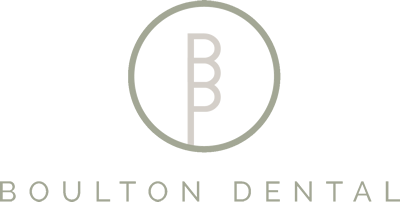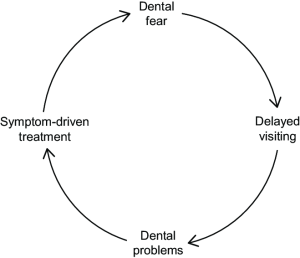
13 Apr Everything you need to know about dental anxiety
Dental anxiety is fear, anxiety or stress associated with going to the dentist. If you suffer from fear of the dentist, you are not alone. In fact, it is very common, affecting every 1 in 6 Australian adults!
Signs and symptoms of dental anxiety
While each individual person may experience dental anxiety in different ways, some common symptoms may include:
- Trouble sleeping the night before a dental appointment
- Nausea
- Sweating and/or shaking
- Palpitations
- Distress, panic, or tearfulness
- Withdrawal, humour, or aggression used to mask feelings of fear
- Not showing up to a scheduled appointment.
Causes of dental anxiety
Feelings of anxiousness are often caused by the fear that something dreadful will happen during dental treatment. Common causes include:
- Personal or family history of dental trauma
- Fear of feeling pain
- Anaesthetic side effects and the feeling of being numb
- Feelings of helplessness and loss of control
- Embarrassment and fear of judgment
- Noises and smells within a dental clinical environment.
How dental anxiety can contribute to oral health
Image sourced: Armfield JM, Stewart JF, Spencer AJ. The vicious cycle of dental fear: exploring the interplay between oral health, service, utilisation, and dental fear. BMC Oral Health.
Fear of visiting the dentist can cause avoidance of attending appointments. This may result in oral health problems such as pain, missing teeth, infections, tooth decay, and gum disease.
Showing up to the dentist only when in pain or in an emergency can mean more complicated treatments. This is because avoiding the dentist increases the risk of dental problems progressing! This may contribute to heightened fear and complete avoidance in the future.
It is important to recognise this cycle of fear and how it can contribute to oral health and general health. Regular six monthly dental check-ups are essential to detect signs of oral health problems early. In the early stages, these problems are easier and more comfortable to treat.
Dental anxiety management tips
Your dentist’s goal is to make your appointment as simple and stress-free as possible. Of course, there are a few things you can also do to minimise dental anxiety:
- Start with a consult and develop a plan with your dentist. Your dental professional can tailor treatment so that it’s comfortable and suits your individual needs.
- Tell your dental professional about your fears! Being open and honest means triggers may be avoided, which will make the experience more comfortable. The dentist may slow down the process and allow time for breaks and a thorough explanation of planned treatment.
- Wondering how to distract yourself at the dentist? Often there are TVs at the dental surgery and music playing to make you feel at ease. Feel free to bring your own headphones and play your own music as a distraction.
- Relaxation exercises and medication.
- Bring a family member or friend for support
- Happy gas, anyone? Sedation is often an option that can be discussed and planned prior to treatment.
- Follow your treatment plan and make an appointment before you leave the surgery this helps you plan and prepare mentally for your next appointment.
Remember: dental anxiety is common, and it’s normal to have some apprehension and nervousness before a dental appointment
Receptionists, dental assistants, dentists, hygienists, and oral health therapists are all highly trained and prioritise your comfort and care.
Untreated dental problems lead to poor oral and general health — making an appointment for a check-up and cleaning is the first step to overcoming your anxiety!
Find a dentist with experience in dental anxiety management at Boulton Dental
Sources:
- Bryne, E. et al. (2022) “Seeing the person before the teeth: A realistic evaluation of a dental anxiety service in Norway,” European Journal of Oral Sciences, 130(3). Available at: https://doi.org/10.1111/eos.12860.
- Appukuttan, D. (2016) “Strategies to manage patients with dental anxiety and dental phobia: Literature review,” Clinical, Cosmetic and Investigational Dentistry, p. 35. Available at: https://doi.org/10.2147/ccide.s63626.
- Milgrom, P. et al. (2010) “The effects of dental anxiety and irregular attendance on referral for dental treatment under sedation within the National Health Service in London,” Community Dentistry and Oral Epidemiology, 38(5), pp. 453–459. Available at: https://doi.org/10.1111/j.1600-0528.2010.00552.x.


Sorry, the comment form is closed at this time.